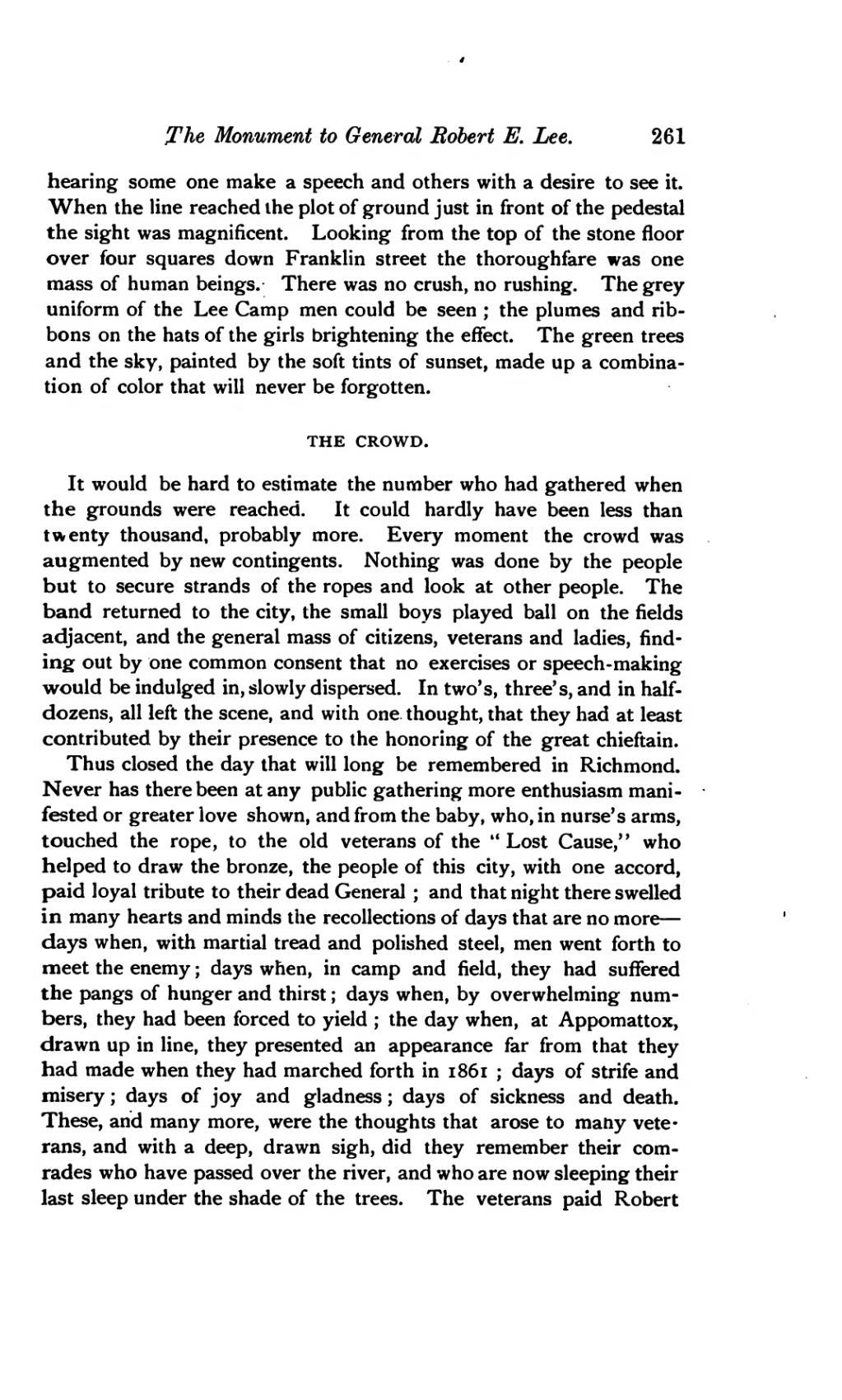The Monument to General Robert E. Lee. 261
hearing some one make a speech and others with a desire to see it. When the line reached the plot of ground just in front of the pedestal the sight was magnificent. Looking from the top of the stone floor over four squares down Franklin street the thoroughfare was one mass of human beings. There was no crush, no rushing. The grey uniform of the Lee Camp men could be seen ; the plumes and rib- bons on the hats of the girls brightening the effect. The green trees and the sky, painted by the soft tints of sunset, made up a combina- tion of color that will never be forgotten.
THE CROWD.
It would be hard to estimate the number who had gathered when the grounds were reached. It could hardly have been less than twenty thousand, probably more. Every moment the crowd was augmented by new contingents. Nothing was done by the people but to secure strands of the ropes and look at other people. The band returned to the city, the small boys played ball on the fields adjacent, and the general mass of citizens, veterans and ladies, find- ing out by one common consent that no exercises or speech -making would be indulged in, slowly dispersed. In two's, three's, and in half- dozens, all left the scene, and with one thought, that they had at least contributed by their presence to the honoring of the great chieftain.
Thus closed the day that will long be remembered in Richmond. Never has there been at any public gathering more enthusiasm mani- fested or greater love shown, and from the baby, who, in nurse's arms, touched the rope, to the old veterans of the '* Lost Cause," who helped to draw the bronze, the people of this city, with one accord, paid loyal tribute to their dead General ; and that night there swelled in many hearts and minds the recollections of days that are no more — days when, with martial tread and polished steel, men went forth to meet the enemy ; days when, in camp and field, they had suffered the pangs of hunger and thirst ; days when, by overwhelming num- bers, they had been forced to yield ; the day when, at Appomattox, drawn up in line, they presented an appearance far from that they had made when they had marched forth in 1861 ; days of strife and misery ; days of joy and gladness ; days of sickness and death. These, and many more, were the thoughts that arose to many vete- rans, and with a deep, drawn sigh, did they remember their com- rades who have passed over the river, and who are now sleeping their last sleep under the shade of the trees. The veterans paid Robert
